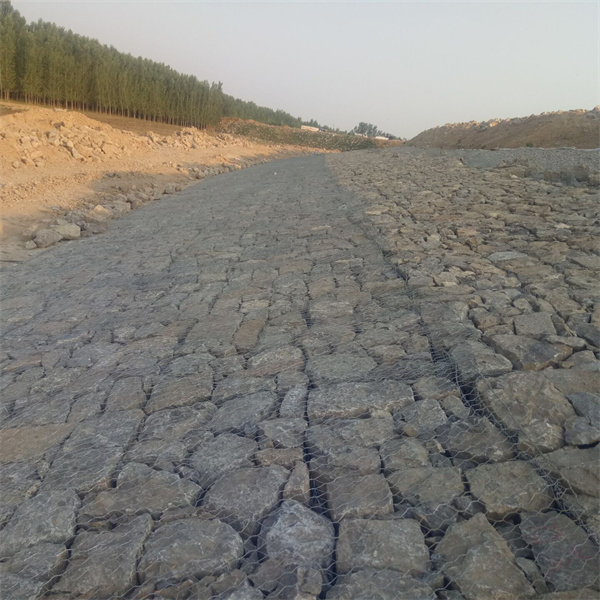Nov . 11, 2024 01:15 Back to list
China's Durable Gabion Stone Wall Fences for Enhanced Outdoor Landscapes
The Benefits of China Gabion Stone Wall Fences
In recent years, the use of gabion stone wall fences has gained significant popularity in various sectors, including landscaping, construction, and environmental management. Particularly in China, these structures have become a favored choice for those looking to combine aesthetics with functionality. This article will explore the benefits of gabion stone wall fences, highlighting their durability, versatility, affordability, and environmental advantages.
What Are Gabion Stone Wall Fences?
Gabion walls are structures made from wire mesh baskets filled with stones or other materials. They can be used for various purposes, including retaining walls, noise barriers, and decorative fences. The term gabion comes from the Italian word gabbione, which means big cage. This design concept, while simple, provides several advantages that make gabion stone wall fences particularly appealing.
Durability and Strength
One of the primary benefits of gabion stone wall fences is their durability. These structures are designed to withstand harsh weather conditions and are highly resistant to erosion. The stone-filled baskets can absorb and dissipate energy from water flow, making them ideal for areas prone to flooding. Additionally, the use of galvanized or stainless steel wire for the cages ensures that they resist rust and corrosion, extending their lifespan significantly compared to traditional wall materials.
Versatility in Design
Gabion stone wall fences offer remarkable versatility in design and function. They can be adapted to various styles and landscapes, from rustic to modern aesthetics. The stones used in the baskets can be sourced locally, allowing for a natural look that blends seamlessly with the environment. Furthermore, gabion walls can be constructed in different shapes and sizes, which makes them suitable for both residential and commercial projects. Whether for privacy, decoration, or land stabilization, gabion fences can meet multiple needs.
china gabion stone wall fence

Cost-Effectiveness
In comparison to traditional fencing materials like wood, concrete, or brick, gabion stone wall fences can be more cost-effective. The installation of these structures typically requires fewer resources, and labor costs may be lower since gabion walls can often be assembled quickly. Moreover, the longevity and low maintenance requirements of gabion walls can lead to further savings over time. Their ability to utilize local materials not only reduces transport costs but also promotes the use of sustainable building practices.
Environmental Benefits
Construction processes often lead to significant environmental impacts; however, gabion stone wall fences are considered eco-friendly. They can help manage water runoff and reduce soil erosion, contributing to more sustainable land management practices. The porous nature of the stones allows water to flow through the structure, reducing pressure on waterways during heavy rains. Furthermore, gabions can serve as habitats for local flora and fauna, promoting biodiversity and enhancing the ecological benefits they provide.
Installation and Maintenance
Another advantage of gabion stone wall fences is the simplicity of their installation. Typically, they do not require extensive groundwork or specialized equipment, making them accessible for DIY projects. Additionally, maintenance is generally minimal. The stones are unlikely to need replacement unless a significant structural failure occurs or there is a shift in the surrounding landscape.
Conclusion
Gabion stone wall fences represent a practical and aesthetically pleasing option for various fencing and structural needs. Their durability, versatility, and cost-effectiveness make them a noteworthy alternative to traditional materials. Furthermore, by considering their environmental benefits, gabion walls can be an integral part of sustainable development practices. With their growing popularity in China and elsewhere, it is clear that gabion stone wall fences are not just a passing trend but a long-term solution for modern fencing needs. As more people and businesses recognize these advantages, the future of gabion walls looks bright.
-
Visualizing Gabion 3D Integration in Urban Landscapes with Rendering
NewsJul.23,2025
-
The Design and Sustainability of Gabion Wire Mesh Panels
NewsJul.23,2025
-
The Acoustic Performance of Gabion Sound Barriers in Urban Environments
NewsJul.23,2025
-
Mastering the Installation of Galvanized Gabion Structures
NewsJul.23,2025
-
Gabion Boxes: Pioneering Sustainable Infrastructure Across the Globe
NewsJul.23,2025
-
Custom PVC Coated Gabion Boxes for Aesthetic Excellence
NewsJul.23,2025
-
Installation Tips for Gabion Wire Baskets in Erosion Control Projects
NewsJul.21,2025






